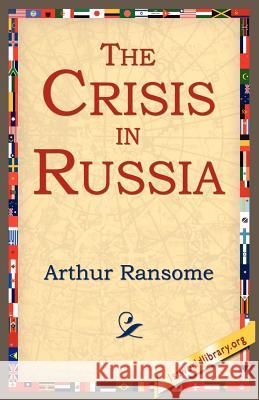The Crisis in Russia » książka
The Crisis in Russia
ISBN-13: 9781595406095 / Angielski / Miękka / 2004 / 140 str.
The Crisis in Russia
ISBN-13: 9781595406095 / Angielski / Miękka / 2004 / 140 str.
(netto: 44,76 VAT: 5%)
Najniższa cena z 30 dni: 46,48
ok. 16-18 dni roboczych.
Darmowa dostawa!
Purchase one of 1st World Library's Classic Books and help support our free internet library of downloadable eBooks. Visit us online at www.1stWorldLibrary.ORG - - THE characteristic of a revolutionary country is that change is a quicker process there than elsewhere. As the revolution recedes into the past the process of change slackens speed. Russia is no longer the dizzying kaleidoscope that it was in 1917. No longer does it change visibly from week to week as it changed in 19l8. Already, to get a clear vision of the direction in which it is changing, it is necessary to visit it at intervals of six months, and quite useless to tap the political barometer several times a day as once upon a time one used to do. . . . But it is still changing very fast. My jourrnal of "Russia in 1919,"while giving as I believe a fairly accurate pictureof the state of affairs in February and March of 1919, pictures a very different stage in the development of the revolution from that which would be found by observers today. The prolonged state of crisis in which the country has been kept by external war, while strengthening the ruling party by rallying even their enemies to their support, has had the other effects that a national crisis always has on the internal politics of a country. Methods of government which in normal times would no doubt be softened or disguised by ceremonial usage are used nakedly and justified by necessity.
Purchase one of 1st World Librarys Classic Books and help support our free internet library of downloadable eBooks. Visit us online at www.1stWorldLibrary.ORG - - THE characteristic of a revolutionary country is that change is a quicker process there than elsewhere. As the revolution recedes into the past the process of change slackens speed. Russia is no longer the dizzying kaleidoscope that it was in 1917. No longer does it change visibly from week to week as it changed in 19l8. Already, to get a clear vision of the direction in which it is changing, it is necessary to visit it at intervals of six months, and quite useless to tap the political barometer several times a day as once upon a time one used to do. . . . But it is still changing very fast. My jourrnal of "Russia in 1919,"while giving as I believe a fairly accurate pictureof the state of affairs in February and March of 1919, pictures a very different stage in the development of the revolution from that which would be found by observers today. The prolonged state of crisis in which the country has been kept by external war, while strengthening the ruling party by rallying even their enemies to their support, has had the other effects that a national crisis always has on the internal politics of a country. Methods of government which in normal times would no doubt be softened or disguised by ceremonial usage are used nakedly and justified by necessity.











